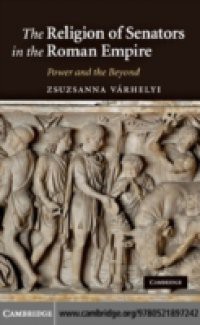This book examines the connection between political and religious power in the pagan Roman Empire through a study of senatorial religion. Presenting a new collection of historical, epigraphic, prosopographic and material evidence, it argues that as Augustus turned to religion to legitimize his powers, senators in turn also came to negotiate their own power, as well as that of the emperor, partly in religious terms. In Rome, the body of the senate and priesthoods helped to maintain the religious power of the senate; across the Empire senators defined their magisterial powers by following the model of emperors and by relying on the piety of sacrifice and benefactions. The ongoing participation and innovations of senators confirm the deep ability of imperial religion to engage the normative, symbolic and imaginative aspects of religious life among senators.

